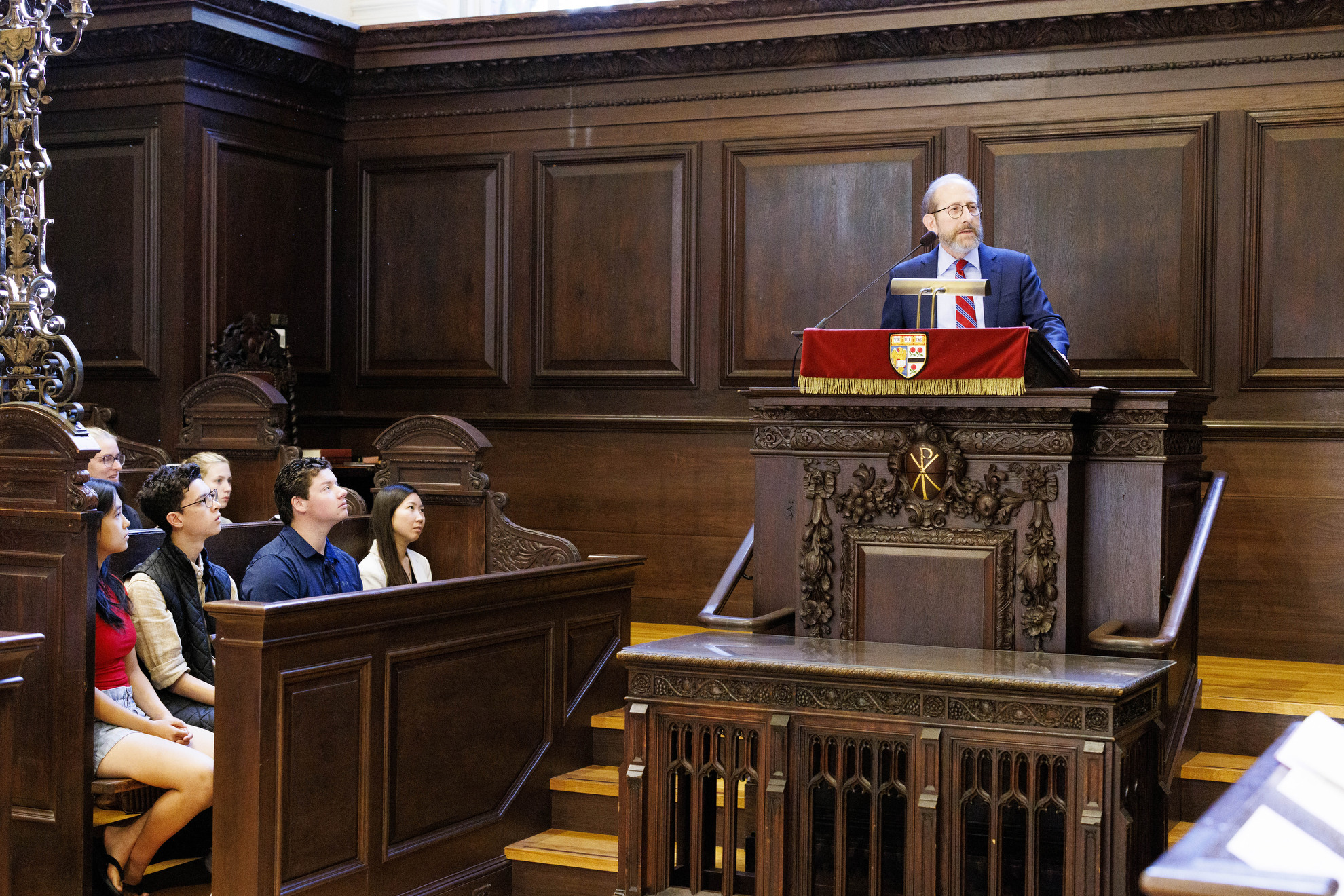
"a requirement that had been in place for 250 years. The petitioners vigorously argued their case. But they also allowed that the ritual was not without value, possessing the potential to "bring the passing and casual under the shadow of the eternal; to make a man feel that amid the confusion of his hurried life, he can lay hold of an unvarying, underlying truth.""
"To answer the question, Garber reflected on the "vast, wonderful, and pervasive sense of curiosity" he observed in his 13 years as the University's provost and chief academic officer. "I witnessed many moments of joy and celebration punctuated by new questions, questions large and small, questions that seemed small but turned out to be large, questions too numerous to answer in a single career or even a lifetime," he said."
Disagreement and debate are presented as essential to the vitality and advancement of meaningful institutions. A successful 1886 petition ended compulsory attendance at Morning Prayers while recognizing the ritual’s potential to provide an enduring sense of truth amid life's confusion. A question about what truth to hold now is raised, especially in a challenging year marked by events beyond control. A 13-year tenure as provost and chief academic officer revealed a vast, wonderful, and pervasive sense of curiosity. Many moments of joy and celebration were punctuated by new questions, some small that became large, and questions too numerous for a single career. Asking and reckoning with such questions often begins with confrontation and debate driven by a shared desire for deeper understanding.
Read at Harvard Gazette
Unable to calculate read time
Collection
[
|
...
]